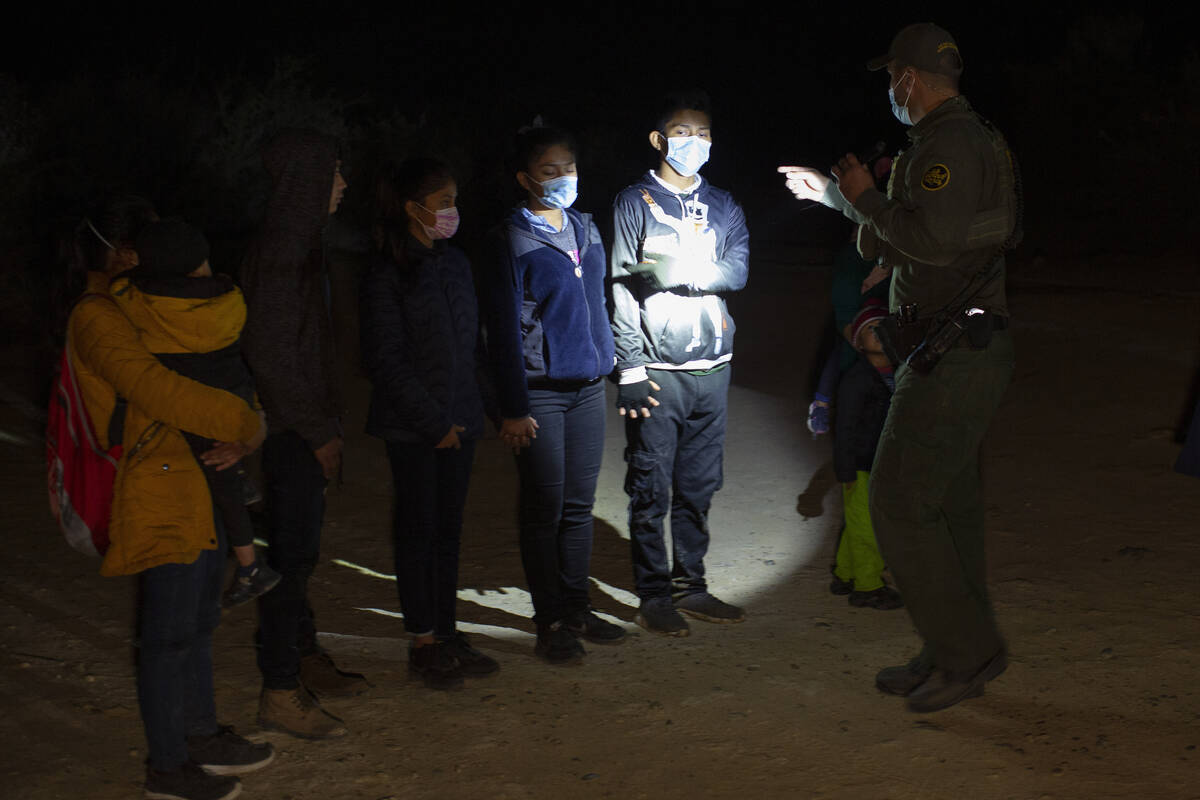RUBEN NAVARRETTE JR.: Biden’s new immigration policy has a familiar old ring to it
The U.S. immigration debate is a house of lies. And some policy changes can be terribly deceptive.
Last week, the Biden administration unveiled a modified immigration enforcement plan. Frontline Immigration and Customs Enforcement agents who hunt for undocumented immigrants in the interior — and by extension, also Border Patrol agents who patrol la frontera — have been told to stand down by their boss, Department of Homeland Security Secretary Alejandro Mayorkas.
More precisely, U.S. immigration agents have been encouraged to not aggressively pursue, detain and arrest those undocumented immigrants who do not pose a danger. Instead — in Mayorkas’ words — agents “focus on individuals who pose a threat to national security, public safety and border security.”
Agents are also supposed to take note of how long someone has lived in the United States and concentrate on removing those who entered in the past year.
To some Americans, this policy will seem like a common-sense allocation of resources. To others, it will come across as anarchy and open borders.
It’s tough to argue that the borders are open when the Biden deportation-industrial complex just removed more than 7,000 Haitians in less than three weeks. The border doesn’t get any more closed than that.
The resources argument is stronger. America can’t deport her way out of the immigration predicament. It’s our nation’s prerogative to remove individuals who are in the country illegally. But, as a practical matter, not everyone can be apprehended, processed and removed. Besides, many of those who are removed are likely to return, especially if their families remain on this side of the border.
Yet I worry that the new policy is just a distraction away from the human rights catastrophe with the Haitians. In the end, not much will change. Because rank-and-file border patrol agents won’t let it change. The underlings are union-protected civil servants who often aren’t keen on following orders and who needn’t worry about being fired if they don’t.
Law enforcement officers enforce the law. That’s what they do, and it’s all they do. Having imagination is not a job requirement.
The first person to get me to see the limits of immigration enforcement was, ironically, someone tasked with enforcing immigration laws. Having spent time in the Peace Corps between college and law school, he had a great imagination.
John T. Morton was director of ICE during the first term of the Obama administration, from 2009 to 2013. At the beginning, President Barak Obama was racking up 1,000 deportations per day and telling detractors that he could not stop the removals because the president is “not a king.” When Morton attended strategy meetings on immigration at the White House, his voice was reportedly one of the loudest in favor of immigration reform.
I was not surprised. Because, on my trips to Washington and Morton’s trips to San Diego to visit the U.S.-Mexico border, the director and I made a habit of seeking each other out and sitting down over diet sodas.
During one sit-down in 2010, Morton told me: “When you start removing people who have been here for 25 years, it isn’t so simple. There is a whole life wrapped up in this person, much of it lawful and positive, like the fact that they raised kids here. This is someone’s parent, grandparent. We have to ask, ‘Is removal the only remedy?’ No. And it might not be the best remedy in all cases.”
On another occasion, he said this: “Enforcement alone isn’t a long-term solution. It’s part of the solution, but not the whole thing. We need serious people in this government to grapple with this issue and find a lasting solution.”
Morton’s solution was to issue, in March 2011, a six-page internal memorandum — what became known as the “Morton memo” — to all ICE field office directors, frontline field agents, and the chief legal counsel.
In the document, Morton advised that the bureaucrats “may” exercise discretion and show leniency toward some illegal immigrants by weighing certain factors, including the length of time the person had lived in the United States and whether he or she had a criminal record.
Sound familiar? The Mayorkas memo is the Morton memo, Part II.
However well-intentioned, Morton’s policy directive was largely ignored by ICE personnel. It was a big waste of time. I’m afraid that — perhaps one day soon — we’ll conclude the same about its successor.
Contact Ruben Navarrette at ruben@rubennavarrette.com. His podcast, “Ruben in the Center,” is available through every podcast app.





























